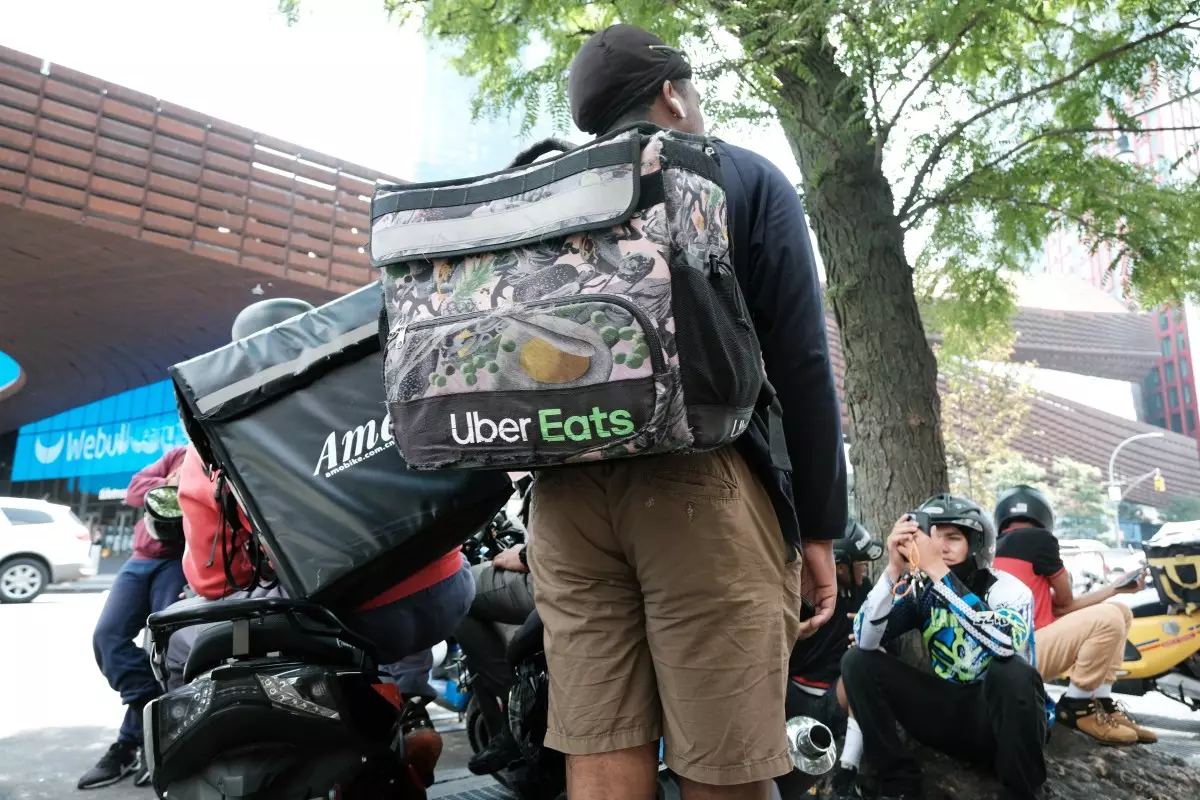The fierce competition in the food delivery industry has escalated into a legal battle, as Uber has recently taken its primary rival, DoorDash, to court. The lawsuit, filed in California’s Superior Court, alleges that DoorDash is engaging in anti-competitive practices that harm restaurants by coercing them into restrictive agreements. As Uber seeks to protect its market share and the interests of its restaurant partners, questions arise about the ethics of competitive strategies in this high-stakes arena.
Uber’s lawsuit paints a picture of a competitive landscape fraught with intimidation tactics. According to Uber, DoorDash is accused of threatening restaurants with severe penalties or punitive actions, including the removal of these restaurants from its platform if they engage with competitors. These allegations indicate a potentially toxic environment where restaurant owners feel they have no choice but to adhere to DoorDash’s demands for exclusive delivery arrangements.
In the realm of food delivery, where partnerships with restaurants are imperative for success, Uber’s claims suggest a concerning scenario where market power could be wielded oppressively. DoorDash’s dominance in the sector, with over 90% of the largest restaurants utilizing their services for first-party deliveries, raises alarms about the implications for fair competition and the freedom of choice for restaurant owners.
In response to the lawsuit, a DoorDash spokesperson quickly dismissed Uber’s claims, labeling them as meritless and uninformed. According to DoorDash, the accusations stem from Uber’s inability to provide an appealing alternative for merchants, consumers, and workers alike. This rebuttal underscores the broader dynamics at play in the marketplace, where both companies are vying for dominance while simultaneously trying to appeal to a common pool of customers and restaurant partners.
The dismissal of Uber’s accusations raises important questions about the balance between competition and monopolistic practices. While DoorDash disputes Uber’s portrayal, the number of complaints from restaurants about feeling pressured to conform to DoorDash’s demands lends weight to the concerns expressed by Uber, suggesting that the industry’s competitive landscape could benefit from greater oversight and regulation.
Uber and DoorDash are not just competing in direct delivery services; both also operate their own white-label delivery services—Uber Direct and DoorDash Drive. Launched in 2020, these services enable restaurants to manage their own customer orders while outsourcing logistics to the delivery companies. The dual-service ability showcases the evolving nature of the gig economy, wherein companies are exploring new revenue streams while still competing head-to-head.
As restaurants increasingly turn to delivery services to augment their sales in a post-pandemic world, the tools made available by both Uber and DoorDash become more critical. However, if one party uses its market power to restrict options available to restaurants, the entire ecosystem suffers. This ongoing struggle between enabling efficient service and stifling innovation through predatory practices remains at the forefront of the legal battle.
Uber’s lawsuit has the potential to impact the food delivery industry significantly. A favorable ruling for Uber could not only bolster its position in the market but also set a precedent for regulating competitive practices among such dominant players. Should the courts find that DoorDash’s tactics are indeed monopolistic, it could provide other companies a path to contest similar issues within their business models.
The complexities involved in this case extend beyond the immediate legal outcome. The repercussions will affect how delivery apps operate, the relationships they maintain with restaurant partners, and the overall consumer experience. Clarity in these business practices will define the future landscape for the gig economy, influencing which companies thrive and which falter in a highly competitive market.
As the lawsuit between Uber and DoorDash unfolds, it becomes increasingly evident that the stakes are high for all parties involved—from delivery app giants to the restaurants they serve. Ultimately, the case underscores the ongoing tension between competition and monopolistic practices within the rapidly evolving food delivery sector. In a world where consumer preferences continue to shift, the resolution of this legal conflict could have lasting implications on fairness and ethics in the business landscape, ensuring that restaurants and consumers alike have the freedom to make choices without fear of retribution.

